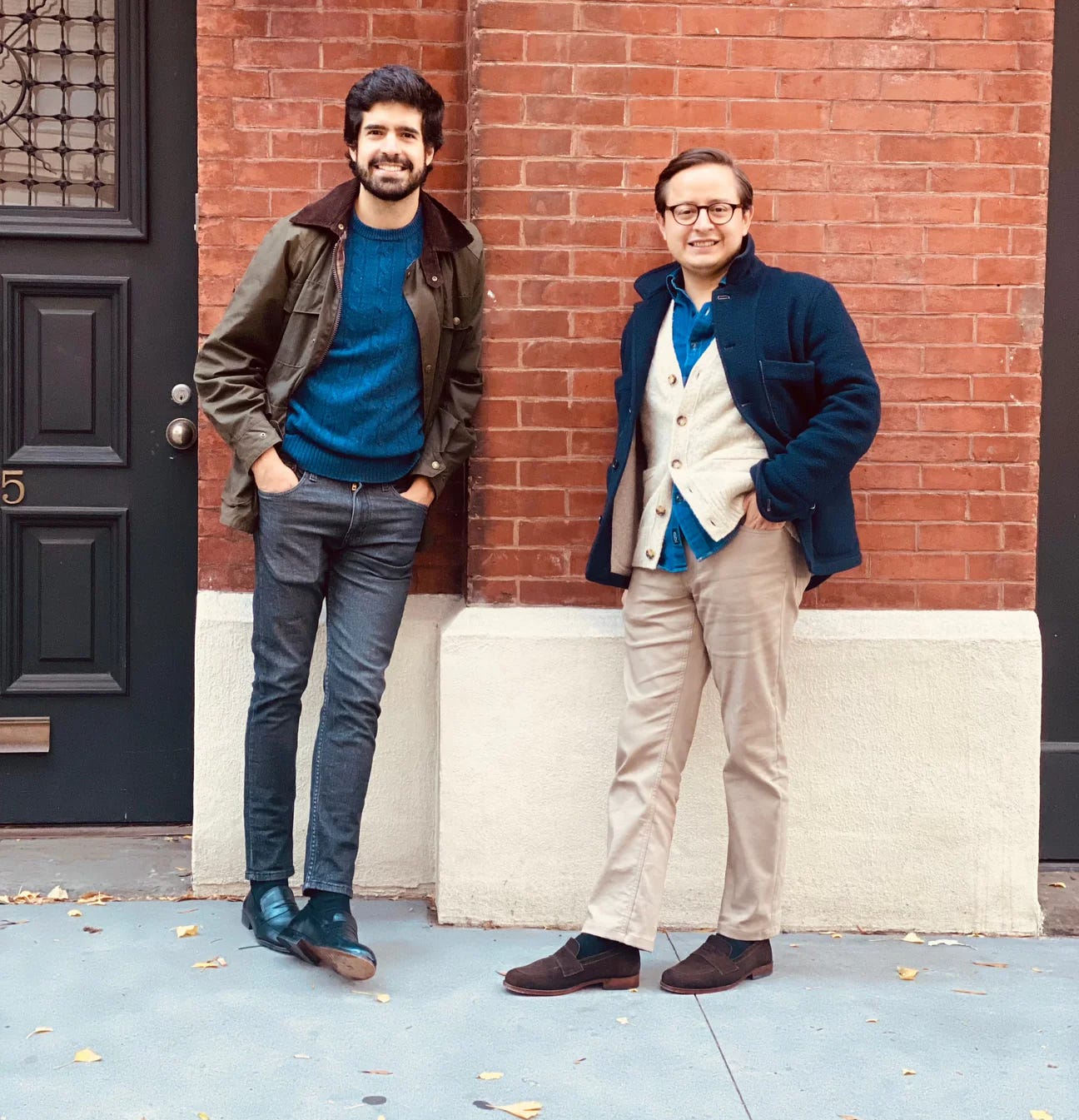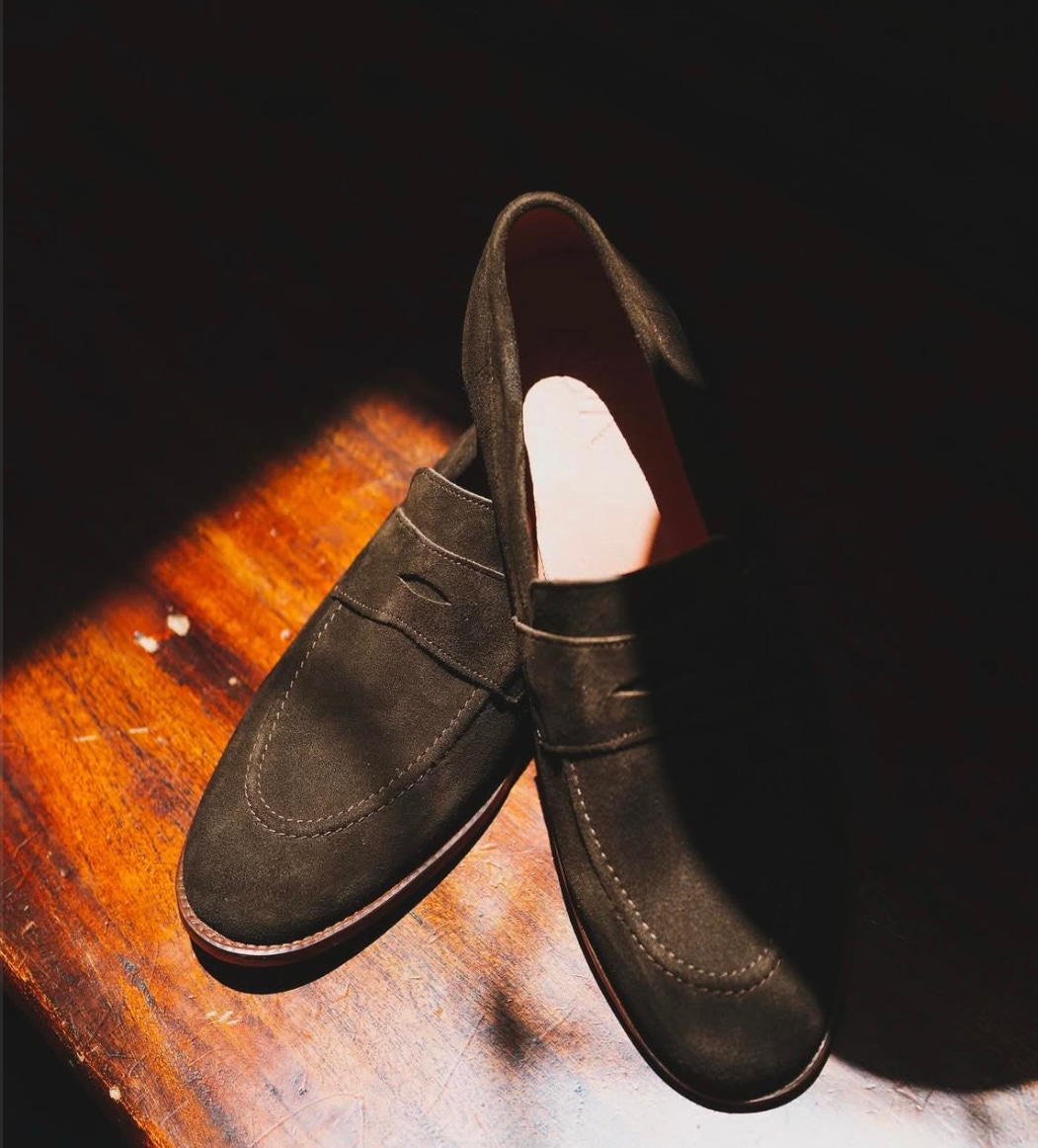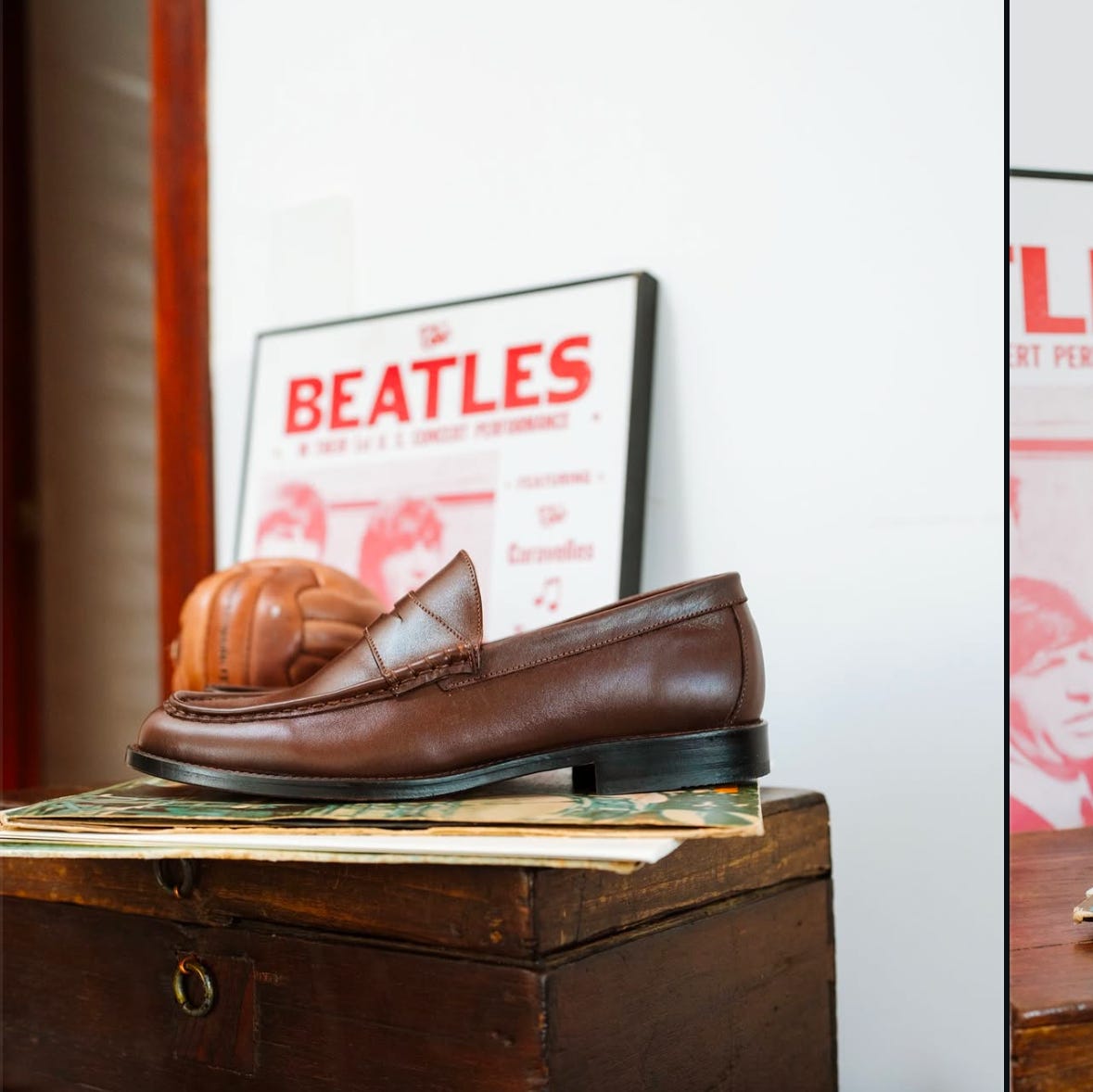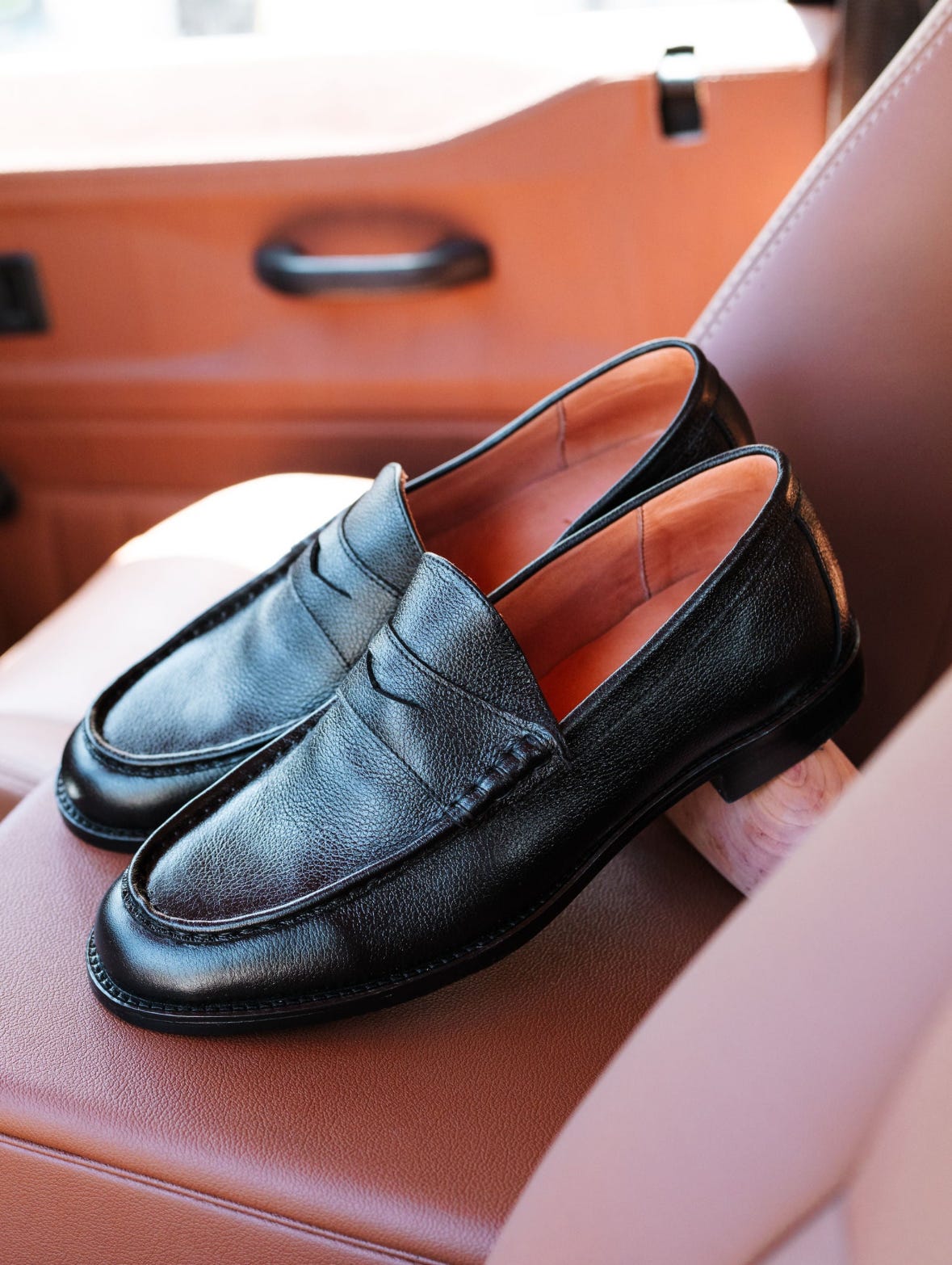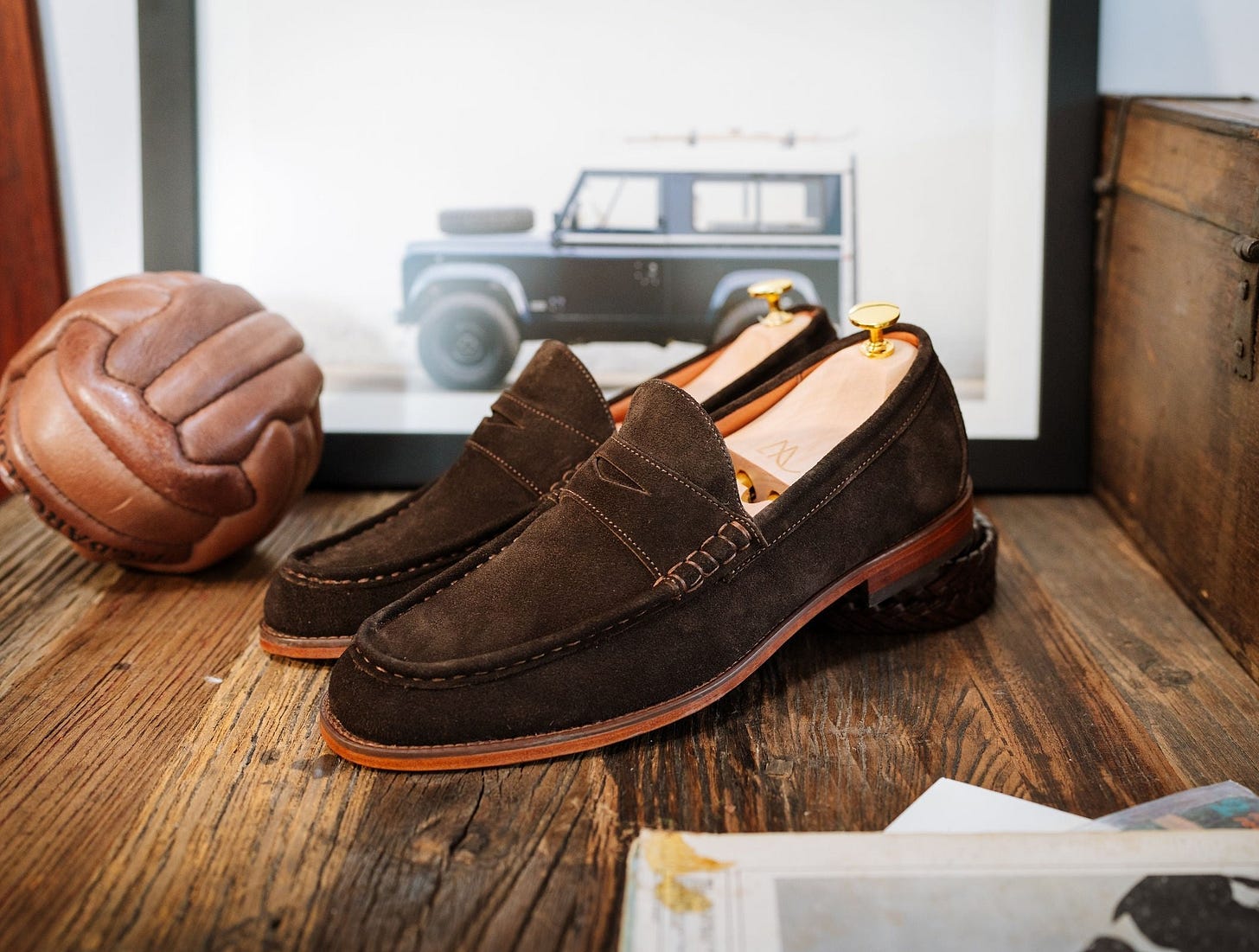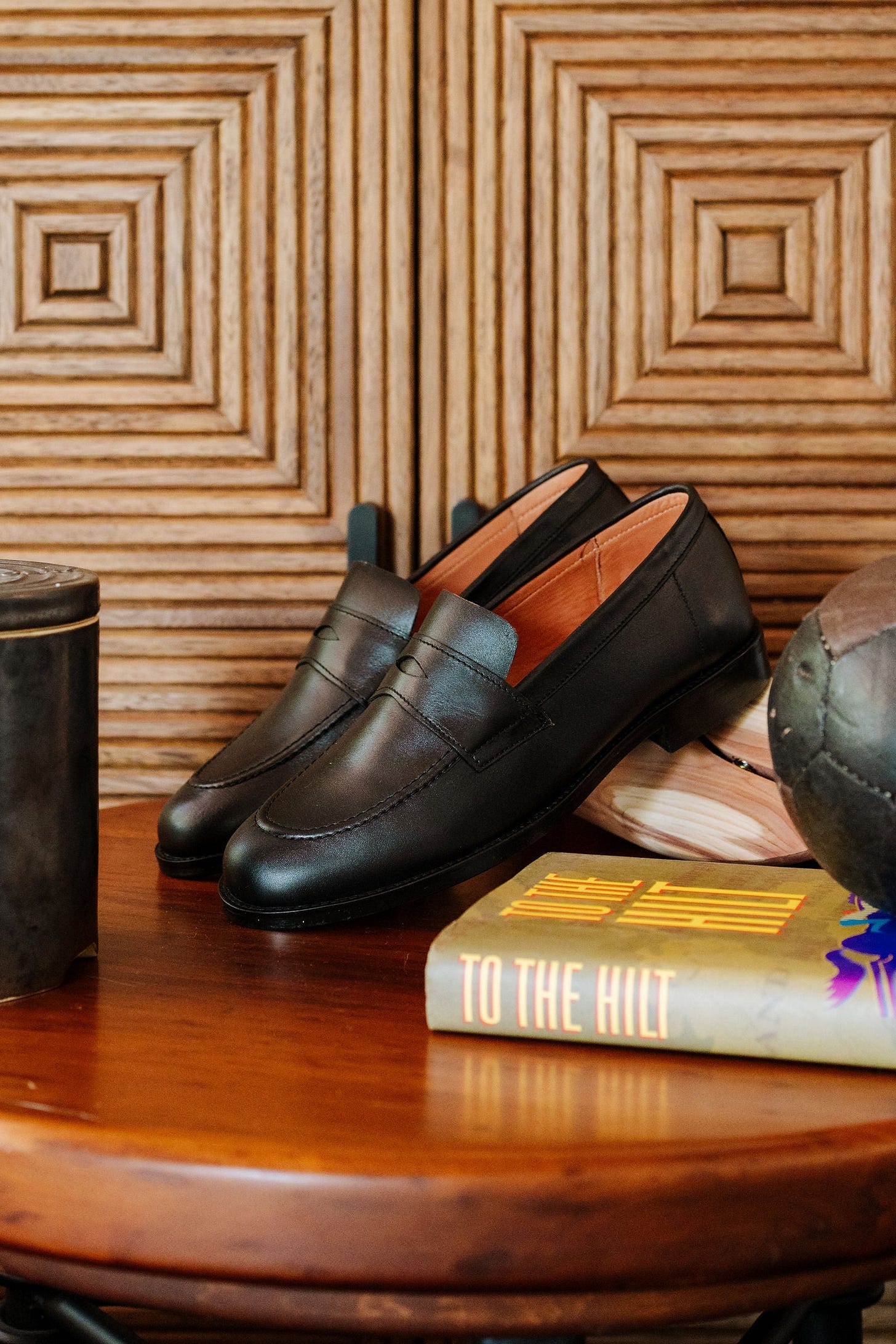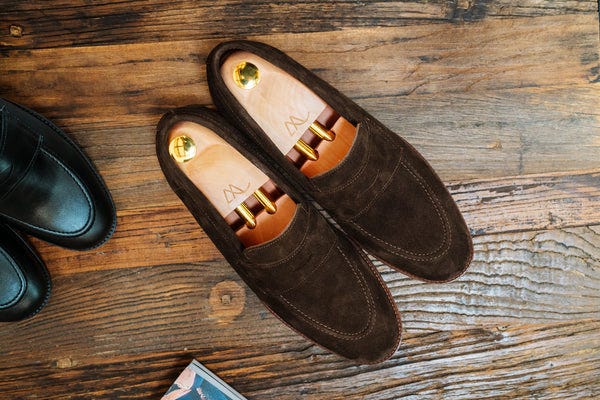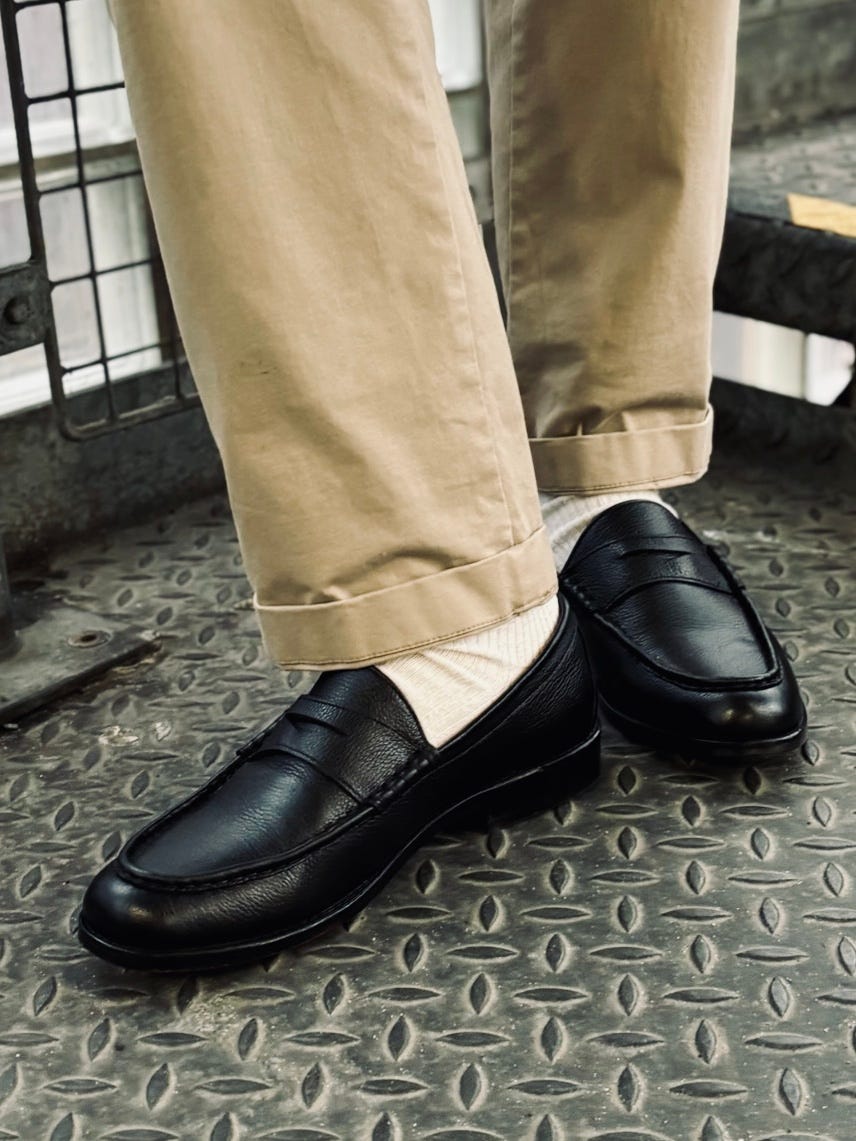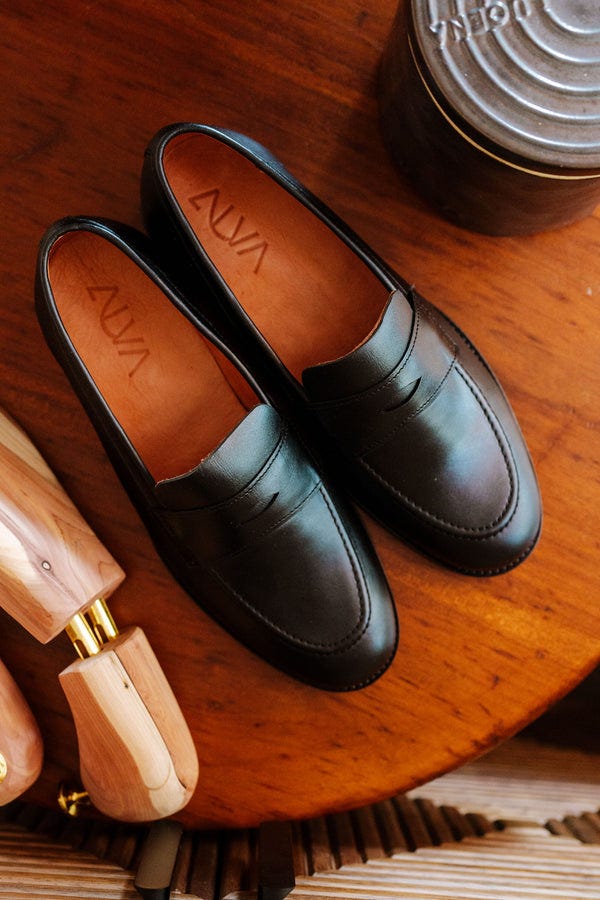“It’s not just about making great shoes—it’s about honouring generations of craftsmanship and bringing Ecuadorian shoemaking to the world.”
If you’re a regular reader of this blog, you’ll know I love New York City. One of the things that makes it so special is the way different cultures come together, creating a unique creative energy. Well, I can now add something else to the list of what I love about New York—its connection to some of the finest handmade shoes in my collection, crafted with Ecuadorian artisanal expertise.
Meet Juan and Jonathan: Wall Street finance workers by day, and the brains behind ALVA—manufacturers of handcrafted footwear—by night (and every spare moment in between).
ALVA may be a new brand, but it certainly doesn’t feel that way. They offer a fantastic range—which I’ve been lucky enough to try—and they’ve instantly become a favourite in my collection. Everything about them, from the product imagery to the shoots and styling (not to mention the beautiful loafers themselves), gives the impression of a brand that’s been around for years.
That’s what makes ALVA so special—you can see the passion shining through. Two brothers creating something together, built on skill and heritage, is truly something to admire.
I had the chance to sit down with them to talk all about ALVA.
You and Jonathan both work in finance on Wall Street, yet you’ve also launched a footwear brand rooted in Ecuadorian craftsmanship. That’s a pretty big leap—what was the reaction from people around you when you made that decision?
Even though we both still have our corporate jobs, we started ALVA as a passion project—something that blends our love for finely crafted footwear with our desire to support the incredible craftsmanship of Andean cobblers.
When we first shared the idea, people were definitely surprised—some even a little confused. A lot of them had no idea about the level of skill and quality that goes into shoemaking in Ecuador (neither did we before starting this project), so it took a bit of explaining. But once we told the story, showed pictures and videos, their curiosity immediately turned into excitement and respect for the cobblers’ techniques.
Ecuador has such a rich history of leatherworking, but it’s not always the first place people think of when they talk about high-end footwear. What do you wish more people knew about the country’s craft traditions?
When we first started exploring Ecuador’s shoemaking tradition, we were completely blown away. The craftsmanship was already there—beautiful hand-stitching, flawless finishing, and top-tier materials—but no one was really telling that story. It wasn’t a question of talent or tradition; it was simply that no brand had stepped up to put Ecuadorian shoemaking on the global map.
Every pair of shoes is handcrafted by artisans who have been perfecting their skills for generations. We work directly with them—no middlemen—making sure they’re fairly compensated and that their craftsmanship gets the recognition it deserves.
In a way, Ecuador’s under-the-radar status in the luxury footwear world has been a blessing. Without the pressures of mass production or over-reliance on technology, these artisans have been able to refine their manual techniques to an incredible level of detail. That’s what makes their work so special, and we’re excited to share it with the world.
There’s a lot of heritage in what you do, but at the same time, ALVA isn’t about just recreating the past. How do you balance tradition with making something that feels right for today?
For us, tradition is the foundation—but we’re not here to simply recreate the past. We believe the right approach today is a balance between heritage and transparency. People appreciate well-crafted products more than ever, but they also want to know where they come from and how they’re made. There’s a growing demand for ethical production, and we want to be upfront about every step of the process.
That’s why, at the core of ALVA, we see ourselves as having two key responsibilities:
1. Honouring and promoting the craftsmanship that Andean cobblers have refined over generations.
2. Supporting their growth by giving them access to the tools and markets they wouldn’t otherwise reach.
By doing this, we’re not just preserving tradition—we’re helping it evolve in a way that makes sense for today.
You work closely with artisans in Cuenca, Ambato, and Otavalo—do you have a favourite memory from visiting a workshop or seeing a piece come to life?
One of our favourite moments was holding our very first prototype. Not only was it beautifully crafted, but it was our aha moment—we knew right then that we were onto something special.
Beyond that, what really sticks with us is the excitement and pride we see from the artisans when they finish a new prototype. Sometimes, they’re just as surprised as we are at how incredible their work turns out—realising that their shoes can stand toe-to-toe with luxury brands around the world.
A particularly touching memory was speaking with an artisan who had been a cobbler for over 40 years. He had been considering retirement, unsure if there was a future for his craft. But when he saw that we could bring his shoes to a global audience, it reignited his passion and convinced him to keep going. Moments like that remind us why we started ALVA in the first place.
Shoes are personal. The right pair can completely change how someone carries themselves. What’s the feeling you want people to have when they wear ALVA for the first time?
We want people to feel a deep sense of confidence when they step into a pair of ALVA shoes—the kind that comes from knowing you’re wearing something consciously made, full of character, and completely unique. Since each pair is handmade, no two are exactly alike. Every stitch, every cut of leather, every finish carries the artisan’s touch, making each shoe one of a kind.
And here’s the best part—ALVA shoes feel amazing right from the first wear. There’s this common belief that leather shoes need a long break-in period, but ours are comfortable from day one.
It’s true—ALVA shoes feel great from the first wear. I’ve been wearing the Turi Black Tumbled Leather Moccasin for a little over two weeks now, and the more I wear them, the better they fit and feel. These really do mould to the shape of your foot, a great sign of an expertly crafted pair of shoes.
Built with a Goodyear welt construction, the Turi is made to last, pairing durability with comfort. The supple black tumbled leather gives them a refined yet relaxed look, while the leather sole and rubber heel provide the right balance of flexibility and grip. Whether dressed up or down, they slot effortlessly into any wardrobe—just as a great pair of shoes should.
There’s always talk about ‘buy less, buy better,’ but in reality, people are used to convenience and fast fashion. How do you approach those conversations when someone isn’t familiar with handcrafted footwear?
These conversations can be tricky because people are so used to fast fashion prices. When they see the cost of a handcrafted pair of shoes, their first instinct is to compare—but that’s where we step in to explain what goes into making them. Each pair of ALVA shoes takes 10 to 12 hours to craft, with artisans shaping, stitching, and finishing every detail by hand. That level of care and skill simply doesn’t exist in mass-produced footwear.
We always highlight two key points:
1. Durability—both in design and construction. Our shoes are timeless, made to be worn for years, not just seasons.
2. Perspective—fast fashion might be cheaper, but it comes with hidden costs: exploitation, waste, and poor-quality materials.
At the end of the day, we simply lay out the facts and let people decide what kind of impact they want to make with their purchase.
What’s next? Are there things you’re excited to explore in the future, whether in design, materials, or how you work with artisans?
On the design side, we have some exciting releases lined up. In February, we’re launching tassel loafers and chukka boots. By summer, we’re hoping to introduce espadrilles and—if all goes well—a take on the Belgian loafer. And by the end of the year, we’d love to expand into oxfords, monk straps, and even sneakers.
Beyond the products, we’re focused on telling the ALVA story in a more meaningful way. This year, we want to go beyond the transactional side of shoemaking and find ways to support artisans further—whether it’s helping them access better tools and machinery, hire more hands, or attend workshops to refine their craft.
At the end of the day, ALVA isn’t just about making great shoes—it’s about building something that lasts, for both our customers and the artisans behind every pair.
If you’re looking to add high-quality, handcrafted footwear to your collection, explore ALVA's range on their website or follow them on Instagram @alva_hand.crafted. A big thank you to Juan and Jonathan for sharing their inspiring journey and passion for Ecuadorian shoemaking.





